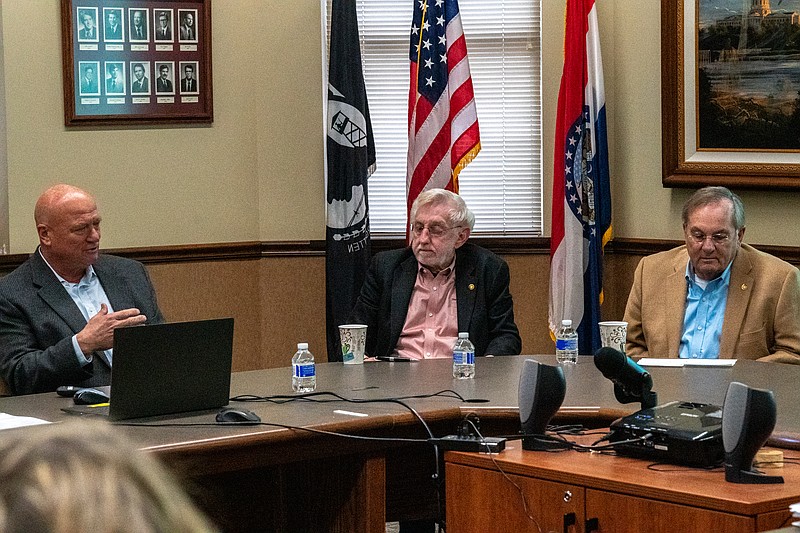A personal appeal to take care of "our workers, OUR PEOPLE" was the sentiment expressed in a letter three Mid-Missouri legislators recently sent to their colleagues in the House.
They were urging their fellow lawmakers to pass a wage and cost of living increase for state workers that has been recommended by Gov. Mike Parson, a move they say could bolster recruitment and retention for the area's largest employer.
Rep. Dave Griffith, R-Jefferson City, Rep. Rudy Veit, R-Wardsville, and Sen. Mike Bernskoetter, R-Jefferson City, sent a letter to members of the Missouri House ahead of session, backing the governor's proposal for a 5.5 percent cost of living adjustment and a $15 per hour minimum base pay standard for state employees.
The letter, which was given to the News Tribune, noted: "We can continue to limp along and give incremental raises here and there, but the fact is that as the cost of living continues going up, our workers' wages have remained stagnant. And that forces our workers, OUR PEOPLE, to make tough decisions.
"We should be putting that money into our own people, knowing that an investment in them is an investment in the future of our state."
The letter cited a study by CBIZ Human Capital Services that found Missouri's wages far below a competitive rate and ranking lowest in the nation. It also pointed to the money previously spent in workforce development efforts in other sectors of the state, including manufacturing.
The lawmakers also noted the state frequently lost workers to similar county jobs or the private sector, saying state departments "have become the training grounds, and it really should be the other way around."
Griffith, who said he had supported a state wage increase throughout his legislative career, said the trio united on the letter to push for the potential economic benefits for their districts.
"It's the area's largest workforce, and we owe it to them to represent them and get them what they need," Griffith said. "This will go a long way toward showing the state employees in our community that we are doing our best for them."
While lawmakers on both sides of the aisle supported the proposal during a House Budget Committee hearing this week -- with Rep. Maggie Nurrenbern, D-Kansas City, reading from the letter during the hearing -- Rep. Scott Cupps, R-Shell Knob, was a vocal opponent of it in committee.
Cupps argued the proposal would do little to change the state's situation and that "we're going to be back talking about how we can't find anybody to work."
"It's his job as a member of the committee to ask the hard questions," Griffith said.
If passed, the increases and adjustments for employees currently making $15 an hour or more would take effect beginning Feb. 1. The plan is part of a supplemental budget proposal from Parson.
"These pay increases are necessary for our team members who provide dedicated service to Missourians day in and day out, and we are calling on the General Assembly to help us make these critical investments in our state workforce," Parson said in December.
State workers received a 2 percent cost of living adjustment (COLA) at the start of the year after missing a raise in 2021 amid the pandemic. The state workforce received COLAs through two previous budgets.
Missouri is home to more than 50,000 state employees, according to the Office of Administration. More than 14,000 of them live in the Jefferson City area, according to the Jefferson City Area Chamber of Commerce.
The plan would cost $119 million in total, with $55 million set to come from general revenue, according to Parson's office.

